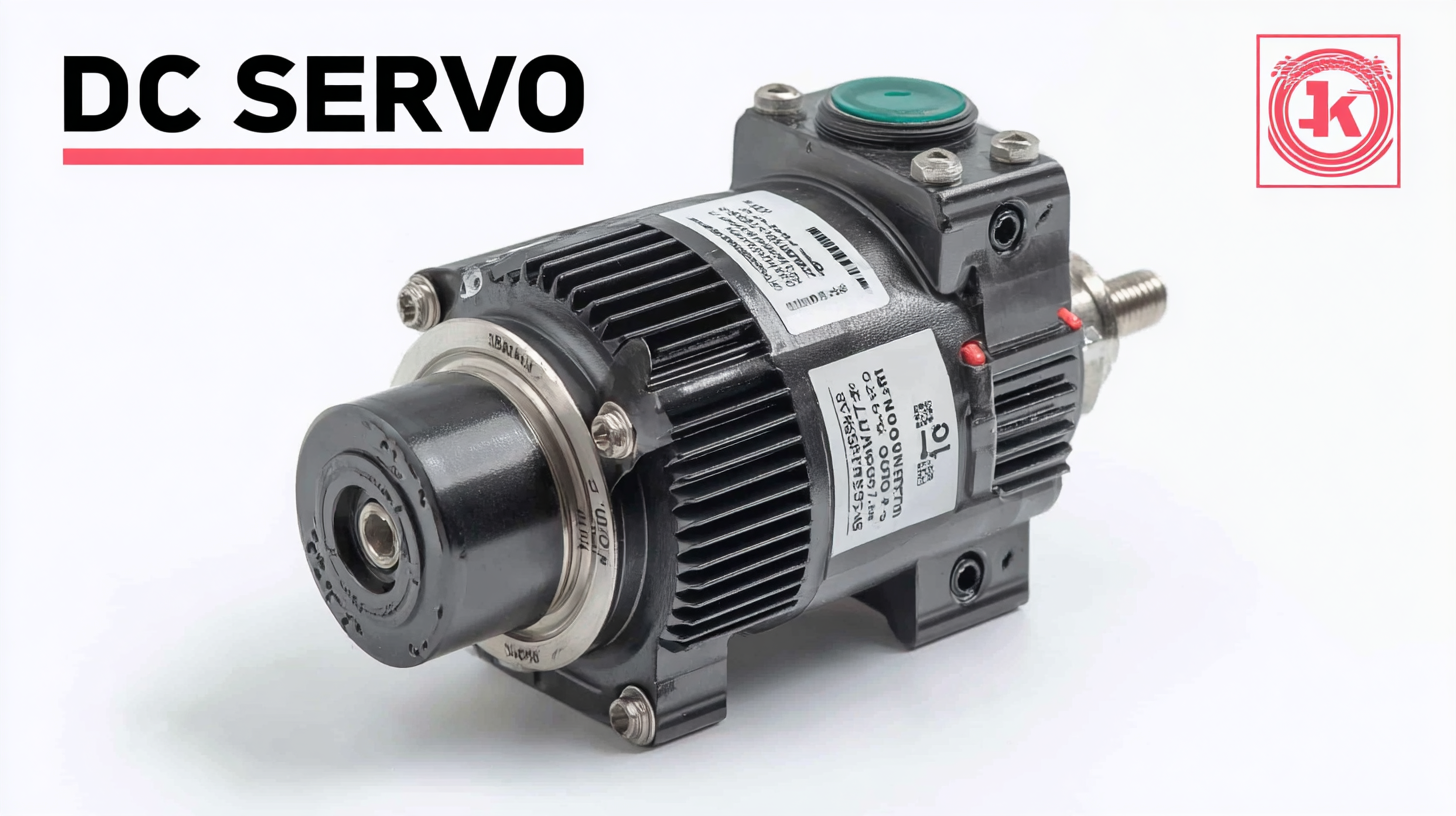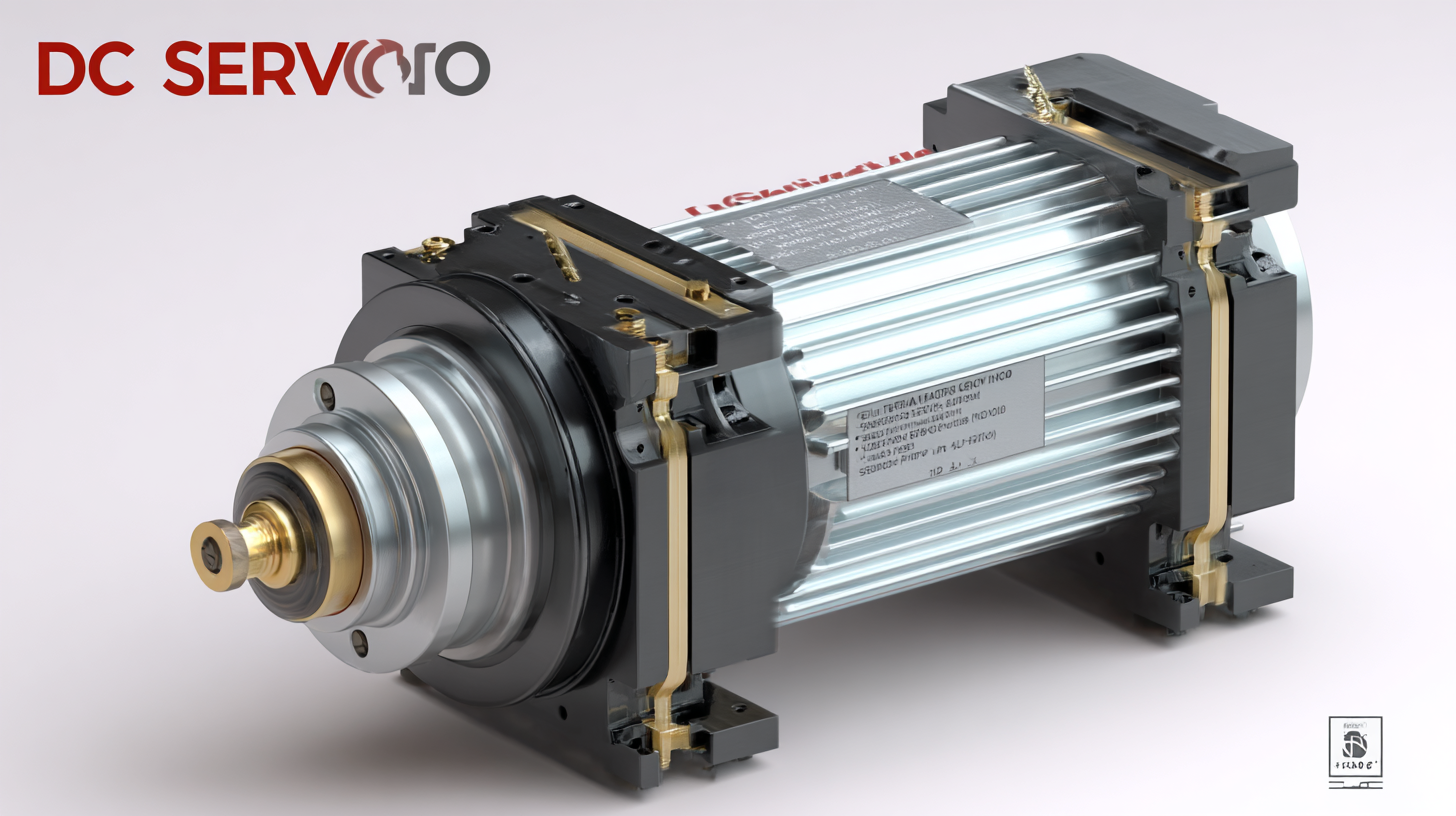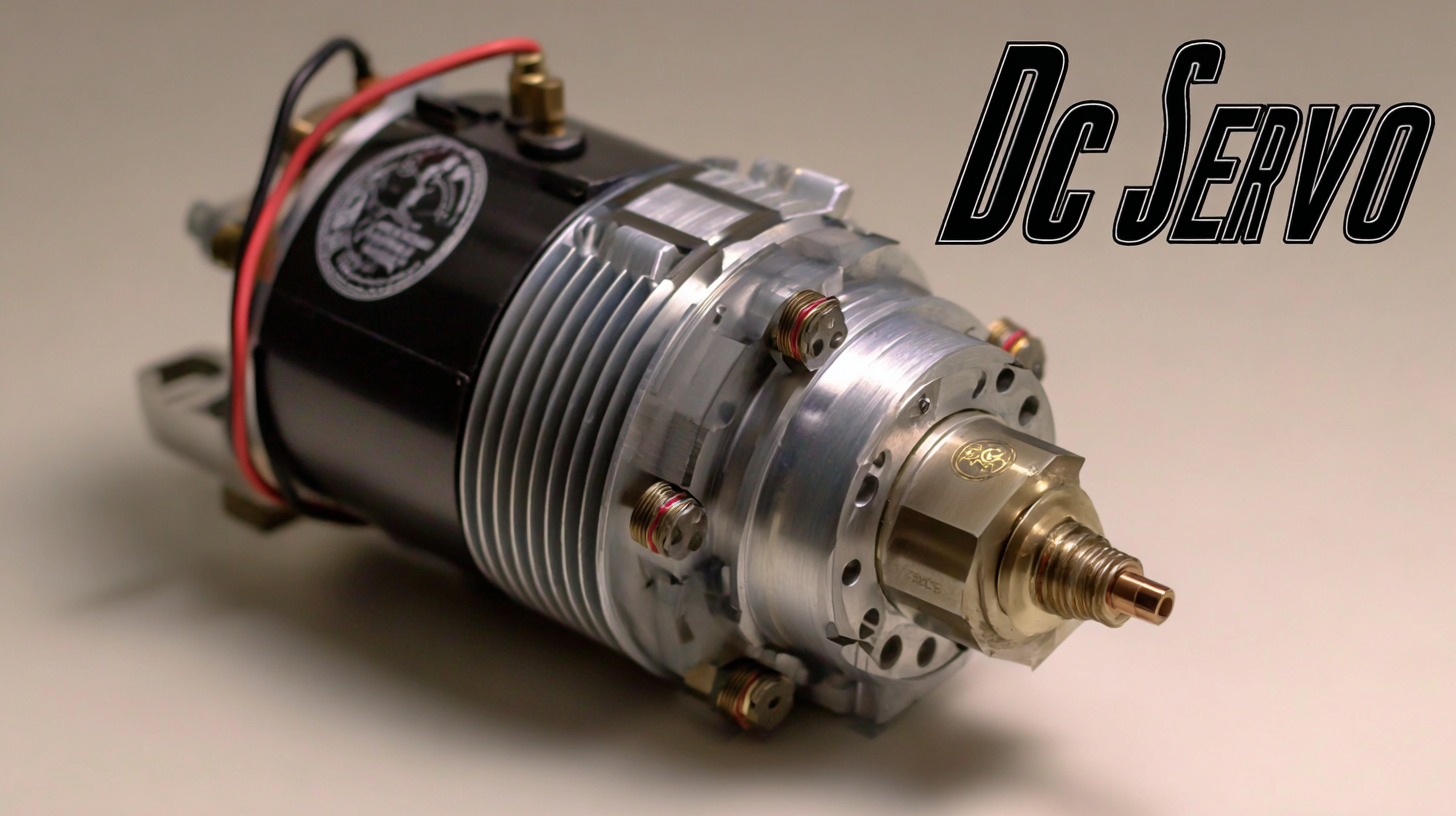
Exploring Competitive Solutions to Best DC Servo Motor for Your Manufacturing Needs
In the ever-evolving landscape of manufacturing, selecting the right technology is crucial for optimizing efficiency and maintaining competitive advantage. One of the most pivotal components in modern automated systems is the DC Servo Motor. According to a recent market research report by MarketsandMarkets, the global servo motor market is projected to reach USD 11.6 billion by 2025, growing at a CAGR of 6.5% from 2020, which clearly underscores the increasing reliance on advanced motor solutions in production environments.

The versatility, precise control, and reliability of DC Servo Motors have made them a top choice for industries ranging from automotive to aerospace. As businesses seek to improve performance and reduce operational costs, it is essential to explore competitive solutions that not only meet these manufacturing needs but also align with future technological advancements in the field. This guide aims to provide valuable insights into selecting the best DC Servo Motor tailored to your specific requirements.
Understanding DC Servo Motor Basics for Manufacturing Applications
When it comes to manufacturing applications, understanding the basics of DC servo motors is crucial for selecting the right solution for your operational needs. DC servo motors are essential components in various industrial processes, providing precise control and high efficiency. Their ability to perform well in dynamic environments makes them ideal for automation tasks, robotics, and CNC machinery.
Tips for maximizing the performance of DC servo motors include ensuring proper sizing and matching of the motor to the application requirements. An adequately sized motor will not only enhance performance but also prolong the lifespan of the equipment. Consider the load characteristics, speed requirements, and the environment in which the motor will operate. Additionally, regular maintenance and calibration can prevent unexpected downtime and ensure optimal functionality.
Furthermore, when exploring competitive solutions, keep in mind the advantages of incorporating new technologies, such as integrated motion control functionalities. Using systems designed for extra-low voltage can enhance safety and reduce power consumption while still delivering the necessary performance. As you evaluate your options, consider not just the price, but also the long-term benefits of reliability and efficiency in your manufacturing processes.
Exploring Competitive Solutions to Best DC Servo Motor for Your Manufacturing Needs
| Motor Type | Torque (Nm) | Speed (RPM) | Voltage (V) | Feedback Type |
|---|---|---|---|---|
| Standard DC Servo Motor | 1.5 | 3000 | 24 | Quadrature Encoder |
| High Torque DC Servo Motor | 3.5 | 1500 | 48 | Resolver |
| Compact DC Servo Motor | 0.8 | 4000 | 12 | Hall Effect Sensor |
| Brushless DC Servo Motor | 2.0 | 3500 | 36 | Incremental Encoder |
| Mini DC Servo Motor | 0.5 | 6000 | 9 | None |
Key Features to Look for in a Competitive DC Servo Motor
When selecting a competitive DC servo motor for manufacturing applications, several key features should be taken into account to ensure optimal performance and reliability. The efficiency of a DC servo motor is paramount; recent industry reports indicate that high-efficiency motors can achieve performance improvements up to 20% compared to traditional alternatives. This translates into reduced energy costs and less heat generation, enhancing the overall operational lifespan of the machinery.

Another crucial aspect to consider is the motor's torque-to-weight ratio. According to a report by the International Electrotechnical Commission (IEC), modern DC servo motors can offer torque-to-weight ratios 30% higher than older models, allowing for more compact equipment design without compromising on power. Additionally, precision in motion control is vital; advanced DC servo motors now incorporate feedback systems that provide real-time data on motor performance, ensuring accurate positioning and smooth operation. Manufacturers looking to innovate should prioritize these features to remain competitive in a fast-evolving market.
Cost-Benefit Analysis: Choosing the Right Servo Motor for Your Needs
When selecting the right servo motor for manufacturing needs, a cost-benefit analysis is essential in maximizing productivity while minimizing expenses. Servo motors, with their precision and efficiency, play a critical role in industrial automation, driving processes that demand high levels of control and reliability. According to a recent market report, the adoption of servo drives in manufacturing is anticipated to grow significantly, providing businesses with up to 30% savings in operational costs compared to traditional motor systems.
Moreover, the advancement of technology has led to a diversification of motor types available in the market. Variable Frequency Drives (VFDs) and high-performance servo drives offer manufacturers distinct economic advantages. Not only do they enhance performance and reduce energy consumption, but they also significantly lower maintenance costs. With laboratory automation projected to reach a market value of 6.7 billion USD in 2023, the demand for efficient motoring solutions in various industrial applications is clearer than ever. Therefore, choosing the right servo motor not only impacts immediate operational efficiency but also contributes to long-term competitive advantages in an evolving marketplace.
Cost-Benefit Analysis of DC Servo Motors
Top Brands and Models: Evaluating Market Leaders in DC Servo Motors
When it comes to selecting the best DC servo motors for manufacturing needs, understanding the top brands and models in the market is crucial. Industry analyses show that companies like Mitsubishi, Schneider Electric, and Yaskawa lead the pack, renowned for their reliability and performance in diverse applications. According to a recent report by MarketsandMarkets, the global servo motor market is expected to reach $5.9 billion by 2026, driven by the growing demand for automation across various sectors. This underscores the competitive landscape and the importance of evaluating your options carefully to find a solution that aligns with your operational goals.
**Tips:** Evaluate the torque and speed specifications of the DC servo motors you're considering, as these will impact your machinery's overall efficiency. Additionally, look for motors that offer customizable features to better suit your specific manufacturing requirements.
As you analyze the top contenders in the market, consider models like the Yaskawa SGM series, which has garnered praise for its precision and energy efficiency. Additionally, Schneider’s Lexium 32 DC servo motor is noted for its robust construction and ease of integration with other systems. Understanding the strengths of these models can help make informed decisions that enhance productivity and reduce downtime in your operations.
**Tips:** Don’t forget to assess the support and service offerings from the manufacturers, as well-integrated service can significantly affect the longevity and performance of your equipment. Regular maintenance advice and quick-access support can be a game-changer in keeping your production lines running smoothly.

Innovative Technologies in DC Servo Motors for Enhanced Performance
In the realm of manufacturing, the quest for optimal performance and efficiency has led to significant advancements in DC servo motor technologies. Recent industry reports indicate that the global DC servo motor market is projected to reach over $14 billion by 2026, growing at a CAGR of approximately 6% from 2021. This surge underscores the increasing demand for high-precision applications where DC servo motors excel, such as robotics, CNC machinery, and automated assembly lines. The incorporation of innovative designs and materials, such as high-efficiency magnets and advanced control algorithms, has further enhanced the operational capabilities of these motors, enabling greater responsiveness and accuracy.
When selecting a DC servo motor, consider the following tips to maximize performance: First, evaluate your application’s specific torque and speed requirements to ensure proper sizing. An undersized motor could lead to premature failure, while an oversized one may be inefficient. Additionally, investigate the integration of feedback systems like encoders, which can significantly improve positional accuracy. Finally, prioritize motors with lower power consumption and higher thermal stability to enhance longevity and reduce operational costs. As manufacturing demands evolve, adopting these advanced DC servo motor technologies will be essential for maintaining a competitive edge.
